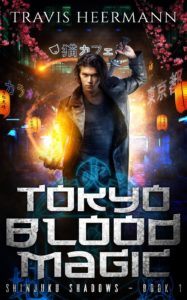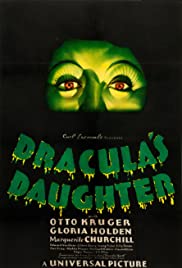Threadbare, the first novel in my Storm Fronts series, gets a mass market edition and hits physical bookstores this month. It’s the realization of a lifelong dream, to see my work on an actual shelf in an actual store, to pull it from the others and turn it face out so everyone can see this thing I’ve created. Every time I walk into a Books-A-Million or a Barnes & Noble or some wonderful independent bookseller, I’ve imagined being able to point at a novel’s spine with my own name on it and say, “Look at this! I made this! I’m the person whose name is on this cover!”
 And with this moment fast approaching, I’ve been doing a lot of thinking about the influences on my work and how Threadbare and the other novels in the series came to be, and specifically all the pieces and parts that went into the protagonist, Vick Corren. Vick is a lot of kickass and a lot of emotional hot mess with some identity crises and self-esteem issues thrown in for good measure. Add in her bisexuality and there weren’t a lot of characters I could draw from as templates, at least not when I was growing up.
And with this moment fast approaching, I’ve been doing a lot of thinking about the influences on my work and how Threadbare and the other novels in the series came to be, and specifically all the pieces and parts that went into the protagonist, Vick Corren. Vick is a lot of kickass and a lot of emotional hot mess with some identity crises and self-esteem issues thrown in for good measure. Add in her bisexuality and there weren’t a lot of characters I could draw from as templates, at least not when I was growing up.
I’m dating myself, but when I was a preteen and teenager, finding strong female role models was a challenge, and finding ones who weren’t heterosexual much more so. There were competent, intelligent, accomplished women on TV, but they generally weren’t the leads. So the rare shows like The Bionic Woman and Wonder Woman were eye-opening. And when Princess Leia snatched the blaster away from Han Solo during her own rescue and got all of them out of that Death Star corridor by blowing a hole in the trash chute and demanding that Han get inside, well, I knew I wanted to write women just like that””women who could rescue themselves, with some help on occasion, but still, women who acted rather than reacted, women who didn’t sit around helplessly awaiting the hero but rather women who were the heroes.
This was where my character, Vick Corren, got her roots. If you read Threadbare you will absolutely see the influence of Jamie Sommers and Leia Organa. Vick has an AI in her head, a sentient computer that makes her stronger, faster, and a lot more resourceful than the average human, much like Sommers’s bionics. But she’s also got Leia’s attitude. Don’t mess with Vick. She’s definitely no-nonsense.
However, I also wanted her to have a softer side. It’s important to me that my characters not seem too impervious, too perfect, too invulnerable. Vick might look like she has it all together when she’s on a mission for her organization of mercenary soldiers, but when the battle ends, when the action stops, when she starts having feelings for someone beyond friendship, she’s just as insecure and confused as anyone heading into their first real romance.
Who could I draw from for those character traits? Well, Leia again, for one. Her resistance to (and inevitable falling for) Han Solo are still some of my favorite scenes to watch over and over again. Battlestar Galactica had some wonderful episodes in which Athena and Cassiopeia put Starbuck in his place. (Yes, his. The original Starbuck was male””dating myself again.) And much like Leia, Colonel Wilma Deering of Buck Rogers fame was another great character displaying both professional competence and romantic insecurity, especially when it came to her relationship with Buck.
Not to say all my influences were from television and film. I was an avid reader from a very young age, and it didn’t take me long to gravitate to the female protagonists of books by Anne McCaffrey, Elizabeth Moon, and Tanya Huff, to name my favorites. These amazing authors showed me how to write characters who could be both strong and sensitive, not necessarily at the exact same time, but at just the right moments, with a balance of each.
And yet, Vick Corren still felt to me as if something was off.
I wrote an entire novel for her, Assassin’s Nightmare. It earned me my first agent representation, but don’t go looking for it in bookstores. It never sold. And I firmly believe the reason for this is that the character was trying to not only tell me something about herself, but teach me about my self as well. Vick Corren is bisexual. So am I.
It took me way too long to figure that out about both of us, but once I did, things really took off. I set Vick aside for a while and wrote my first published novel, Vicious Circle, featuring a bisexual female protagonist. By now, I’d discovered Xena: Warrior Princess, and that was a game changer. Here at last was a character who was obviously bisexual, whether the network executives wanted to state it openly or not. Here was a character with significant flaws striving to redeem herself and admit to herself that she was worthy of love. If you read Vicious Circle or Threadbare, you will definitely see that influence in both main characters. We even marketed Vicious Circle as “Xena: Warrior Princess in space with the subtext as the main text.”
Shortly thereafter, another major influence, author J.A. Pitts, and his Sarah Jane Beauhall series beginning with Black Blade Blues proved that a lesbian blacksmith protagonist for a series could sell to a major New York publisher. (There were probably others, but that’s the one I was aware of in 2010. Got recommendations for me to read? I’m all ears. Toss them in the comments!) With that discovery, I was ready to give Vick Corren another chance, and another novel””Threadbare. No, I didn’t crack New York publishing, but it’s out there in the world, one more book for women who share my orientation and interests to find themselves in, one more role model proving that women can lead adventures of their own.
Final thoughts? Whatever it is you want to write, write it. Listen to your heart. If you write from there, the emotions will come across on the page, and your writing will find its market. Keep hunting until you find your role models. Learn from those who have come before you, the ones who make you feel. And finally, if you can’t find what you’re looking for on bookstore shelves… go create it, so that your work will be there for the next reader who feels just like you.
 Bio:Â Elle Ire writes science fiction novels featuring kick-ass women who fall in love with each other. Her first novel, VICIOUS CIRCLE, released from Torquere Press in November, 2015, and was rereleased in January, 2020, by DSP Publications. Her second novel, THREADBARE, the first in the STORM FRONTS series, was released in August, 2019, by DSP Publications followed by the sequels PATCHWORK and WOVEN in 2020. Her work is represented by Naomi Davis at the Bookends Literary Agency.
Bio:Â Elle Ire writes science fiction novels featuring kick-ass women who fall in love with each other. Her first novel, VICIOUS CIRCLE, released from Torquere Press in November, 2015, and was rereleased in January, 2020, by DSP Publications. Her second novel, THREADBARE, the first in the STORM FRONTS series, was released in August, 2019, by DSP Publications followed by the sequels PATCHWORK and WOVEN in 2020. Her work is represented by Naomi Davis at the Bookends Literary Agency.
Chat with her on Twitter:Â https://twitter.com/
Learn more at her website:Â http://www.elleire.
If you’re an author or other fantasy and science fiction creative, and want to do a guest blog post, please check out the guest blog post guidelines. Or if you’re looking for community from other F&SF writers, sign up for the Rambo Academy for Wayward Writers Critclub!























